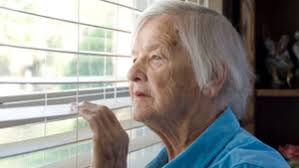 …you know, the epidemic that predated this COVID pandemic … the one that will be made even worse by the COVID pandemic … the one for which there is no vaccine … the one that can result in dementia? The epidemic for which there also are a number of very effective cures and even some public health measures that can be taken to prevent its spread?
…you know, the epidemic that predated this COVID pandemic … the one that will be made even worse by the COVID pandemic … the one for which there is no vaccine … the one that can result in dementia? The epidemic for which there also are a number of very effective cures and even some public health measures that can be taken to prevent its spread?
That’s the way that health care providers are describing loneliness among older adults in America today. We all know that as one ages one ultimately leaves the workforce and perhaps loses friends or a spouse or becomes less physically capable of getting out and about or driving themselves. All of this translates into more time alone, and being alone leads to the isolation that is a common hallmark of depression and even memory loss.
I had mentioned that this epidemic predated the pandemic. In a 2018 survey of adults 60 years of age and older, researchers found that 43 percent of respondents reported feelings of loneliness. We may think that loneliness can be cured by just “shaking it off” or just getting out of the house. Well, the latter can be a positive step, but being lonely is a feeling that is reinforced by too much time disengaged from meaningful contact with others. Research shows that loneliness also leads to other physical ailments such as a weakened immune system, diabetes and high blood pressure. During a pandemic, all of these are also added risk factors that an older adult clearly does not need.
In a 2015 study of seventy different studies – a method called metanalysis – researchers found that loneliness increased an older adult’s risk of non-suicidal death by 26%. Research has also shown that those already predisposed to dementia will develop cognitive issues even earlier, and that confusion and paranoia also show a greater likelihood of affecting the isolated adult. Whatever measures had been taken prior to the current pandemic to mitigate the “loneliness epidemic” have been cancelled or even exaggerated by “social distancing.” In a meeting I attended this past week one of the older participants who currently resides in an independent living facility made an offhand comment that his affluent community “felt like a prison.” What to do?
If you have an older loved one in your orbit, the “cure” is quite simple in concept. Help your older loved one to use it so as not to lose it…lose their cognitive ability. Social engagement via FaceTime or ZOOM can be part of this. Talk to their providers about how “telehealth” can factor into engaging them more fully, and when you communicate with your older loved one do some serious listening. Ask deeper questions than “what did you have for dinner” or “what did you watch on your screen.” So show up – even if on ZOOM – and make them feel both seen and heard. Now, I have mentioned “hearing” a number of times here. Make sure they are able to hear clearly…it is essential to keeping an older loved one engaged and vital that they be able to hear clearly. It keeps the brain nimble and the heart a bit happier. We can all fight this particular epidemic; you can be part of the cure.
Charlotte Bishop is an Aging Life Care Advisor, Geriatric Care Manager and founder of Creative Care Management, certified professionals who are geriatric advocates, resources, counselors and friends to older adults and their families in metropolitan Chicago. She also is the co-author of How Do I Know You? A Caregiver’s Lifesaver for Dealing with Dementia.






